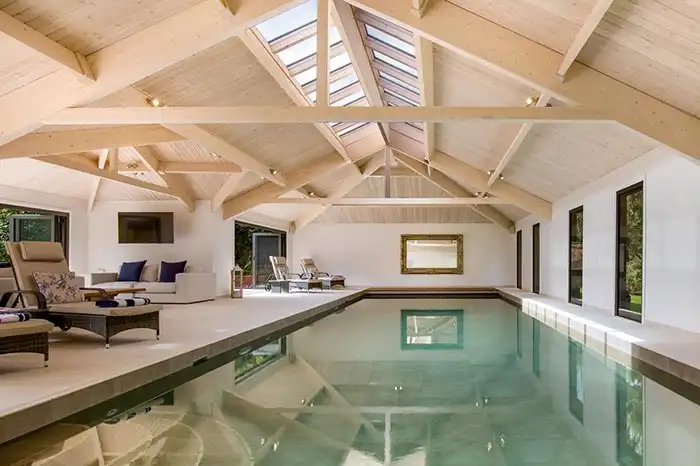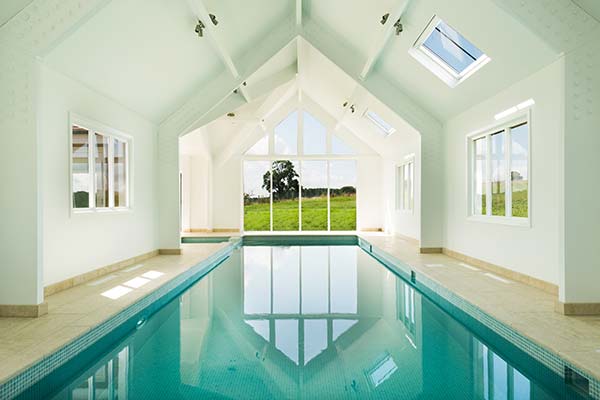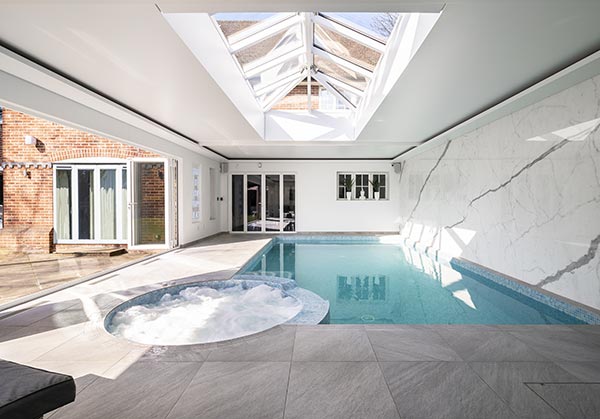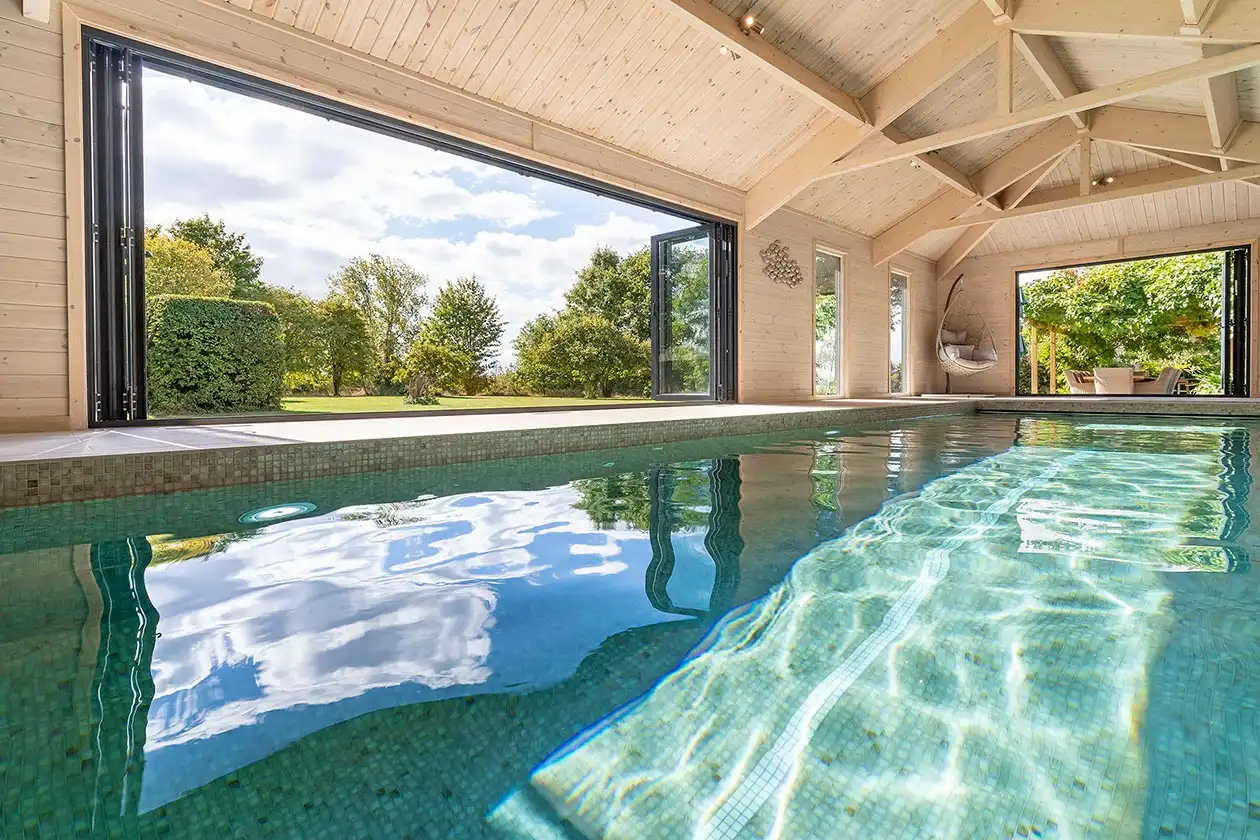
When embarking on the journey of designing an indoor pool, aesthetics such as finishes, style, and colour schemes often take the spotlight. However, it's the underlying design principles that ultimately shape the success of your project. As experts in this field, we want to guide you through the fundamental aspects that should be at the heart of your pool design.
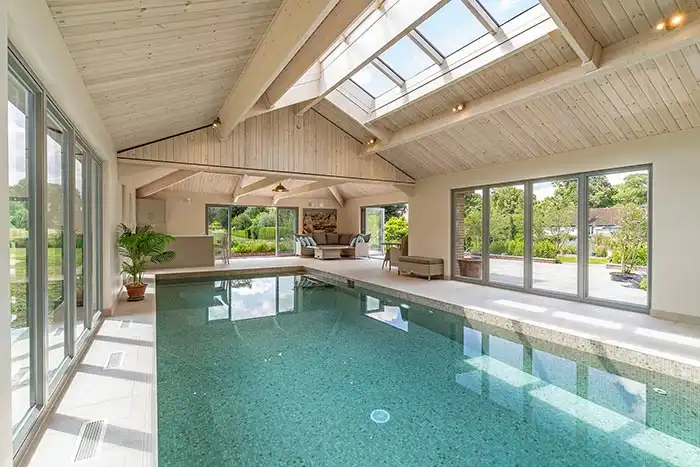
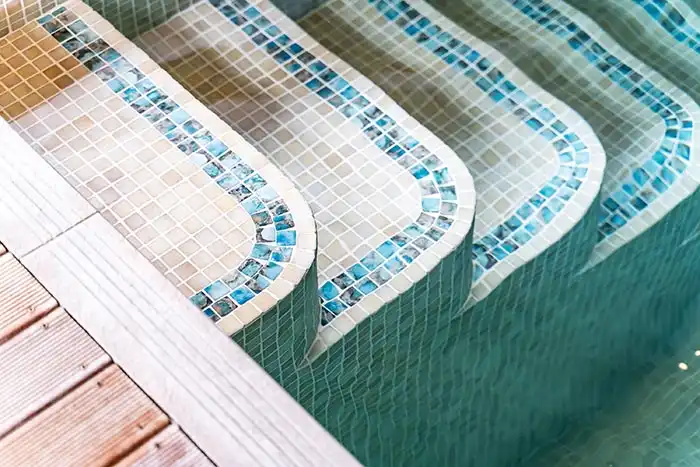
Understanding The Pool's Purpose
The first step of your indoor pool design journey begins with a profound understanding of its intended function. This pivotal decision will be the driving force behind the pool's design and size. Here are key questions to delve into:
Defining the Pool's Purpose: Will it serve as a dedicated space for serious swimming or as a serene retreat for leisure and recreation? A pool designed for focused training differs significantly from one curated for family fun and relaxation.
Water Temperature Considerations: The purpose of the pool also shapes the ideal water temperature. A pool for lap swimming might favour cooler water, while a relaxation-focused pool leans toward warmth and comfort.
Climate Control: Alongside water temperature, climate control within the pool house plays a crucial role in ensuring swimmers' comfort and safeguarding the structure from humidity-related issues.
Operational Hours: How many hours a day will the pool be uncovered and used? This factor impacts everything from heating requirements to dehumidification needs.
Capacity Planning: Anticipating the amount of people using the pool at any one time plays an important role. It can influence the pool's size, shape and even the necessary filtration and chemical treatment systems.
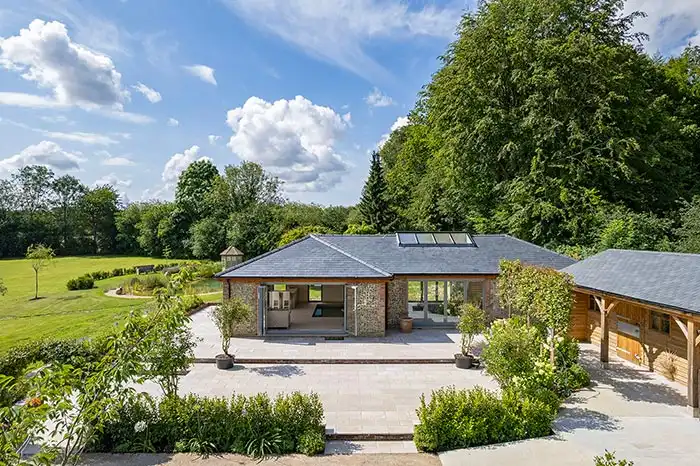
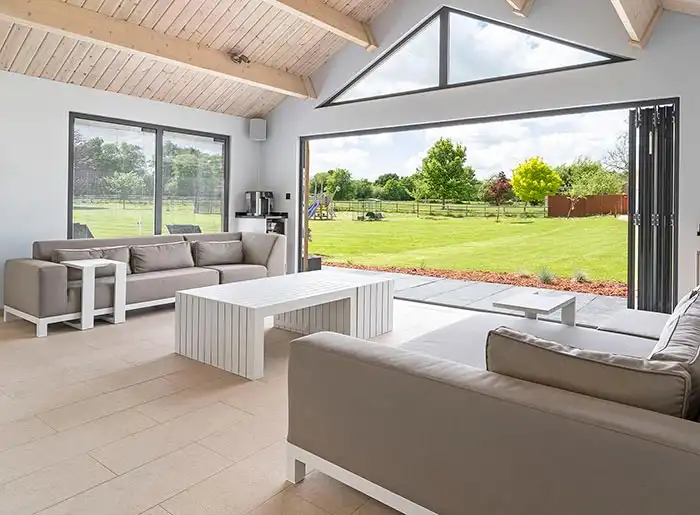
Tailoring design To Usage
Having a bespoke design for your indoor pool will ensure that your pool is unique to you and your needs. A pool designed for family use will differ slightly from one built exclusively for regular exercise. Each aspect of the design – from depth and length to heating and ventilation systems – must be tailored to how the pool will be used. For fitness enthusiasts, you can incorporate advanced swim technology in your pool design such as; a counter-current swim device which will help create the perfect training environment. If the motivation for your pool is family use or relaxation, think about the functionality of your design. Perhaps include a lounge area for socialising or a spa and sauna to ramp up the relaxation.
The Importance Of Professional Input
The complexities of these design parameters highlight the importance of input from an experienced professional. It's not just about creating a visually appealing space; it's about crafting an environment that meets your specific needs and ensures the longevity and functionality of the pool. Designing an indoor pool is a complex process that goes beyond aesthetics. It requires careful consideration of how the pool will be used and who will be using it. By using a company like Origin, which focuses on these foundational aspects, you can ensure your pool not only looks stunning but also serves its intended purpose effectively and efficiently resulting in endless swimming and fun.
